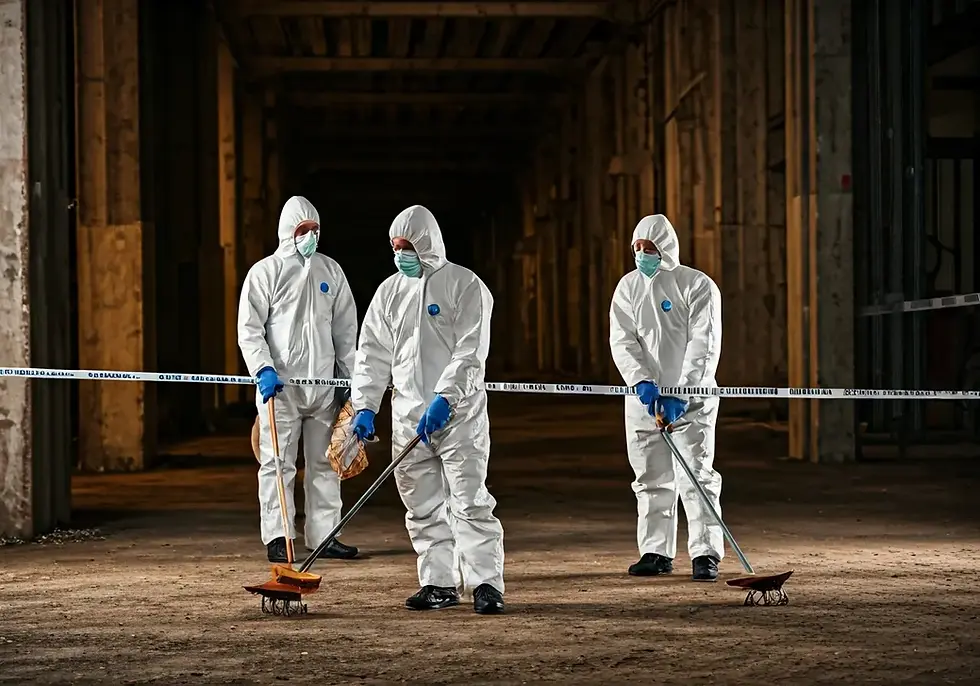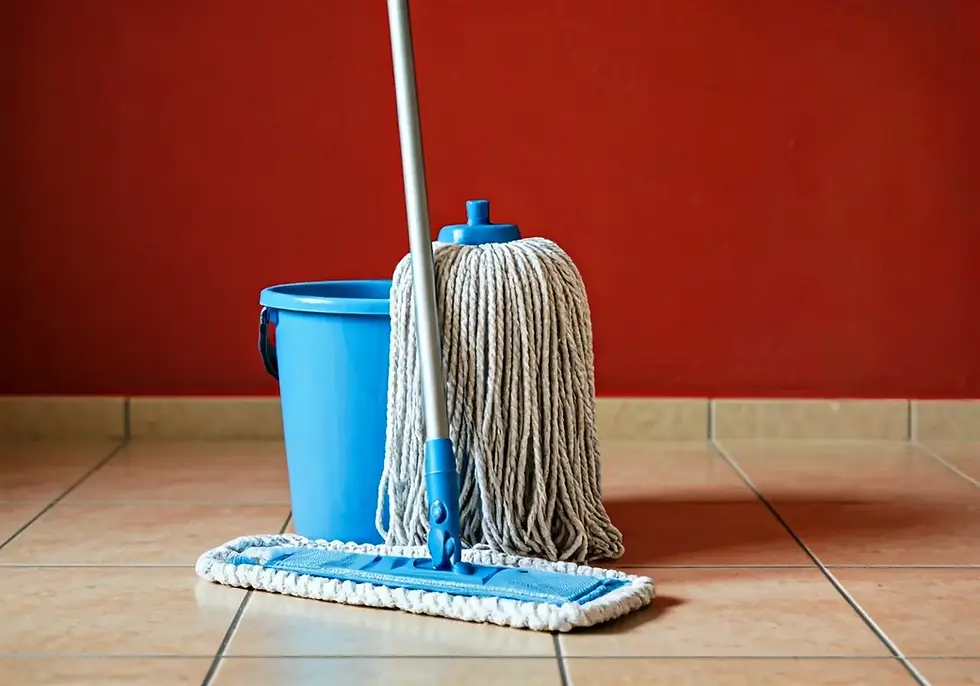Can I Handle Post-Fire Cleanup on My Own?
- BIODECON LLC
- Jun 8, 2025
- 3 min read
Experiencing a fire can be overwhelming, and the aftermath might feel just as daunting. But you might be wondering: Can you tackle post-fire cleanup all by yourself? In this blog, we'll explore the steps and considerations involved in post-fire cleanup, helping you decide if it's something you can handle on your own.

Understanding the Extent of Damage
Before diving in, it's crucial to assess how extensive the fire damage is. This includes checking the structural integrity of the building, smoke damage, and any water damage from firefighting efforts.
A licensed inspector may provide a thorough assessment, which can be invaluable. They can identify hidden damages that are not obvious at first glance, such as compromised structural elements that could pose ongoing safety risks.
Take pictures and document everything as you assess the damage. This documentation is vital for insurance purposes and will give you a clear record of the damage for future reference.
Managing Safety and Health Risks
Safety should be your top priority. Be aware of potential hazards like soot, smoke inhalation, and structural issues. Equip yourself with protective gear and ensure proper ventilation before getting started.
Consider the health risks associated with smoke and soot. These particles can irritate your lungs and worsen conditions like asthma. Using a high-quality mask or respirator can significantly reduce these health threats.
Even if the area looks safe, hidden dangers may linger. For example, damaged electrical wiring can pose a fire hazard if not properly addressed. Contact professionals to ensure these risks are mitigated.
Cleaning Smoke and Soot
Smoke and soot can penetrate deep into materials and cause lingering odors and stains. Determine which surfaces you can clean yourself and where professional intervention might be necessary.
Using the right cleaning agents can make a huge difference in effectively removing soot. Simple solutions like baking soda and vinegar might work on some surfaces, but stubborn or porous materials often require industrial-grade cleaners.
For upholstery and fabrics, consider whether they can be washed or if they need to be replaced entirely. Items like drapes and carpets may hold onto smoky odors, making them candidates for professional cleaning.
Water Damage Remediation
Firefighting efforts can leave behind significant water damage. Efficient water extraction and drying are vital to prevent mold growth. Assess if you're equipped for this or if a restoration service is needed.
It's remarkable how quickly mold can begin to develop—within 24 to 48 hours of water exposure. This makes immediate action critical in water damage remediation.
Deciding When to Call Professionals
Certain cleanup tasks require specialized knowledge and equipment. Understanding when to handle tasks alone and when to hire professionals can save time and ensure a thorough cleanup process.
If you're unsure about any aspect of the cleanup, it's probably a sign that a professional should be called in. Areas like the HVAC system, structural elements, or extensive smoke damage often require skills beyond DIY capabilities.
Contacting a professional service such as Bio Decon LLC can help you manage complex cleanup tasks with ease and efficiency. Their expertise can ensure that your post-fire restoration is both comprehensive and compliant with safety standards.
Deciding on Handling Post-Fire Cleanup
Post-fire cleanup is a complex process that involves assessing damage, dealing with hazardous materials, and much more. While there are aspects you can manage yourself, it's often wise to seek professional help for tasks that require specialized skills and equipment. Prioritize your safety, and don't hesitate to reach out for expert support when needed.




Comments